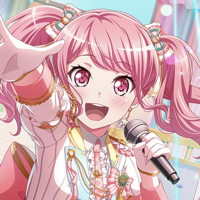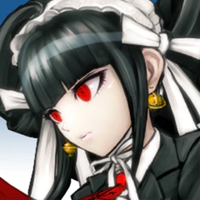Sakiko Togawa tipo di personalità MBTI
Personalità
"Che tipo di personalità è Sakiko Togawa? Sakiko Togawa è un tipo di personalità ENTJ in mbti, 3w4 - sp/so - 416 in enneagram, RLOEI in big 5, LIE in socionics."
在标准的心理类型分析中,态度类型(E I)的分化远比机能(NSTF)要早,而功能和原型态度的完善则相对滞后。从祥子对客体整体的介入、拥抱与积极整合和交互的态度来看,祥子最初的态度类型更接近外倾而非内倾。 祥子在黑祥和白祥时期其实没有改变太多,从遇到高松灯开始,就具有一种“理智训诫”的味道。对高松灯的“紫砂行为”有强介入+告诫不要再这样做的自然行为,这样是不对的、不好的,这其实是一种Je(外倾理性型)的倾向。 后续发掘高松灯歌词的潜力,更多与无意识的Fi有关(阿尼玛/阿尼姆斯 Fi),被具有魔力的内倾情感所“蛊惑”,同时辅助的N也在理念和前景上发现了歌词的潜力。对Crychic的资源整合和分工,以及后续在Mujica的长期管理也体现了理智程式的强约束。 这一强约束也涵盖了她对自己的要求,以及她为了舞台效果定下的各种规矩。 相对劣势的功能是情感(Feeling),她将情感的表达完全等同于做出的行为。认为自己做出了某行为就等同于自己表达了某情感,因此认为长崎素世“你的行为和你说的话矛盾了”,是缺乏诚意、“满脑子都是自己”的表现。祥子对乐团也缺乏情感上的关照,不明确乐队成员各自的主体需求,最终导致键帽违规操作,木头人直接崩溃。 被忽视的身体感觉/主观印象(盲点Si)是大祥老师离不开的课题,较差的居住环境和象征“遗忘”的人偶暗示了对Si的忽视和逃避,也暗含了这一心理功能所对应的创伤情结(小丑原型的象征之一:进退维谷)。In standard psychological type analysis, the differentiation of attitude types (Extraversion, E, and Introversion, I) occurs much earlier than the development of functions (Thinking, Feeling, Intuition, Sensing). The refinement of these functions and archetypal attitudes tends to lag behind. From Saki's general attitude of engaging with, embracing, and actively interacting with her surroundings, it is apparent that her initial attitude leans more toward Extraversion rather than Introversion. During the Black Saki and White Saki phases, her psychological tendencies did not fundamentally change. Starting from her interactions with Tomori, there emerged a tone of "rational exhortation." Saki's strong intervention in Tomori's "zisha (self-destructive) behaviors," accompanied by her natural tendency to admonish, "you shouldn't be doing this," indicates a Je (Extraverted Rationality) tendency. She instinctively labeled such behavior as incorrect or harmful, a hallmark of this orientation. Later, as she explored the potential in Tomori's lyrics, this revealed more involvement with the unconscious Fi (Introverted Feeling) archetype (manifested in the Animus/Anima), where she was "enchanted" by the magical power of inner-subjective feeling. Here, her auxiliary Intuition (N) also played a role, uncovering the conceptual and future-oriented potential in the lyrics. Her resource integration, planning, and division of labor for Crychic, along with her long-term management of Mujica, further align with a highly structured Je-oriented framework. This strong Je influence also extends to her expectations for herself, as well as the various rules she sets to achieve ideal stage effects. However, her relatively inferior function is Feeling, especially in terms of emotional understanding. She equates emotional expression with behavioral action — for instance, assuming that performing a specific action automatically communicates her internal feelings. This leads her to criticize Soyo for being inconsistent in "your actions contradict what you say" and labeling her as insincere or self-centered. Saki also lacks emotional attentiveness toward the band members, failing to recognize their individual needs. Ultimately, this results in the distortion of one member’s role (Mutsumi violating expectations) and another member's complete breakdown (Mutsumi emotionally imploding). The ignored domain of Introverted Sensing (Si) — self-awareness through bodily sensations or subjective impressions — remains a critical challenge for Saki. Her inadequate living conditions, along with the doll symbolizing "forgetfulness," hint at her neglect and avoidance of Si. This avoidance also suggests a psychological trauma associated with the function, represented archetypally by the clown figure, which symbolizes "a dilemma with no clear way forward."
Biografia
She's a first year at Haneoka Girls'High School. She's a former member of the band CRYCHIC, she used to compose their songs and play the keyboard. She often plays the piano in the schools band room
Personalità correlate

BanG Dream! Girls Band Party Player

Kaoru Seta

Aya Maruyama

Soyo Nagasaki

Anon Chihaya

Rinko Shirokane

Hina Hikawa

Kokoro Tsurumaki















